Update To State Of California COVID-19 Tax Relief
Update To State Of California COVID-19 Tax Relief
FTB Coronavirus Tax Relief
The California Franchise Tax Board (“FTB”) has established a special section focused on steps to help taxpayers, businesses and others affected by the coronavirus and as information becomes available, the FTB will be updating this special page on its website.
In line with Governor Newsom’s March 12 Executive Order, FTB initially extended the due dates for State Of California filing and payment for affected taxpayers until June 15, 2020, with the qualification that the deadlines may be extended further if the IRS grants a longer relief period. As the IRS extended filing and payment deadlines to July 15, 2020, the FTB is following the same treatment.
Extension Of Filing And Payment Deadlines
FTB is postponing until July 15, 2020 the filing and payment deadlines for all individuals and business entities for:
- 2019 tax returns
- 2019 tax return payments
- 2020 1st and 2nd quarter estimate payments
- 2020 LLC taxes and fees
- 2020 Non-wage withholding payments
“The COVID-19 pandemic is disrupting life for people and businesses statewide,” said State Controller Betty T. Yee, who serves as chair of FTB. “We are further extending tax filing deadlines for all Californians to July 15. Hopefully, this small measure of relief will help allow people to focus on their health and safety during these challenging times.”
To give taxpayers a deadline consistent with that of the IRS without the federal dollar limitations, FTB is following the federal relief described in Notice 2020-17
Since California conforms to the underlying code sections that grant tax postponements for emergencies, FTB is extending the relief to all California taxpayers. Taxpayers do not need to claim any special treatment or call FTB to qualify for this relief.
But if you are due a refund you should file as soon as possible.
Extension Of Deadlines For Filing Tax Protests, Appeals, and Refund Claims
FTB is postponing until July 15, 2020 the pending filing deadlines for:
- Claims for refunds with FTB
- Protests of proposed tax assessments with FTB
- Appeals to the Office of Tax Appeals of Notices of Action denying claims for refund or affirming tax assessments
Furthermore, the FTB has until July 15, 2020, to issue a proposed tax assessment for years where the statute of limitations expires during the March 12 to July 15, 2020, postponement period.
New Guidance Issued By FTB
On March 27, 2020 President Trump signed the $2 trillion Stimulus Bill formally known as the Coronavirus Aid, Relief and Economic Security [CARES] Act (the “CARES Act”) to provide assistance to workplaces and employees. The CARES Act provides many benefits intended to deliver cash into the hands of individuals and businesses, as well as many other tax provisions. On April 8, 2020 the FTB issued guidance to clarify what Federal tax provisions of the CARES Act will carry over to California State taxes.
Are the payments that individuals receive from the federal government (i.e., $1,200 [$2,400 for individuals filing a joint return] and $500 per qualifying child) under CARES Act subject to California income tax?
No, these payments are not subject to California income tax.
Is the emergency increase in unemployment compensation benefits (in the amount of $600 per week) that individuals receive under the CARES Act subject to California income tax?
No, these payments are not subject to California income tax.
Are the modifications for net operating losses (NOLs) in the CARES Act applicable for California income and franchise tax purposes?
No, these modifications for NOLs do not apply for California income and franchise tax purposes.
Does California conform to the federal early withdrawal penalty waivers for distributions from qualified retirement accounts under the CARES Act?
Yes, the federal early withdrawal penalty waivers for distributions from qualified retirement accounts under the federal CARES Act also applies for California income tax purposes.
An Opportunity For Taxpayers Who Owe The FTB
Do not think that if you owe the FTB your tax problem will disappear because of the measures being considered by the government. Instead you should be utilizing this valuable time to get yourself prepared so that when activity in this State regains momentum, you are ready to make the best offer or proposal to take control of your outstanding tax debts.
As a prerequisite to any proposal to the FTB, you must be in current compliance. That means if you have any outstanding income tax returns, they must be completed and submitted to FTB.
Also, if you are required to make estimated tax payments, you must be current in making those payments. Fortunately, as we are now in 2020, taxpayers who expect to owe for 2019 should have their 2019 income tax returns done now so that the 2019 liability can be rolled over into any proposal and the requirement to make estimated tax payments will now start for 2020.
Remember that COVID-19 does not alter the tax laws, so all taxpayers should continue to meet their tax obligations as normal. Individuals and businesses should keep filing their tax returns and making payments and deposits with the FTB, as they are required to do.
The take away from this – use the California government’s downtime to your advantage to prepare for the future.
Click here for COVID-19 Tax Relief measures instituted by the IRS in “The IRS People First Initiative” that can benefit you.
What Should You Do?
You know that at the Law Offices Of Jeffrey B. Kahn, P.C. we are always thinking of ways that our clients can save on taxes. Tax problems are usually a serious matter and must be handled appropriately so it’s important to that you’ve hired the best lawyer for your particular situation. The tax attorneys at the Law Offices Of Jeffrey B. Kahn, P.C. located in Orange County (Irvine), San Diego County (Carlsbad) and elsewhere in California are highly skilled in handling tax matters and can effectively represent at all levels with the IRS and State Tax Agencies including criminal tax investigations and attempted prosecutions, undisclosed foreign bank accounts and other foreign assets, and unreported foreign income. Also if you are involved in cannabis, check out what a cannabis tax attorney can do for you. And if you are involved in crypto currency, check out what a bitcoin tax attorney can do for you.

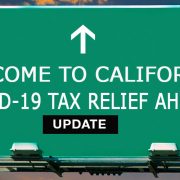
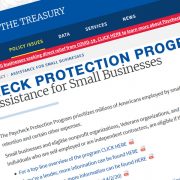
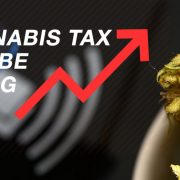
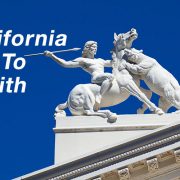


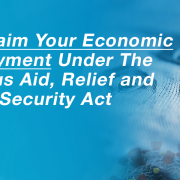

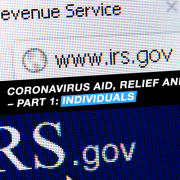
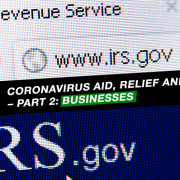
 Follow
Follow Follow
Follow